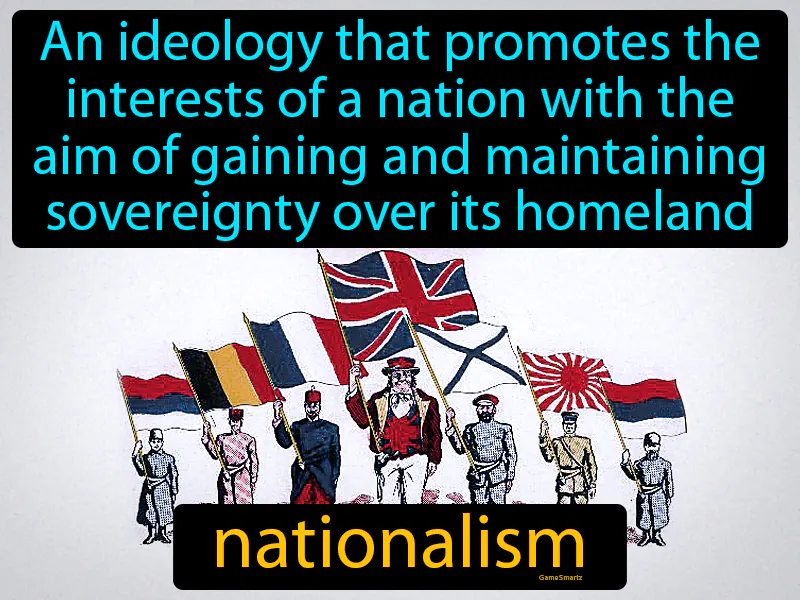Nationalism
Nationalism:
Nationalism played a crucial role in World War 1 by fueling tensions between countries as each nation sought to assert its dominance and independence. It responded to the desire for self-determination and the competition for power, leading to alliances and rivalries that contributed to the outbreak of the war. Nationalism was important at the time because it united people with shared languages, cultures, and histories, but it also led to conflicts as nations prioritized their interests over cooperation. Today, nationalism still matters as it influences political decisions and shapes national identities, impacting how countries interact with each other. For example, when people celebrate national holidays, they express pride in their country's achievements and history, which can strengthen community bonds but also sometimes lead to exclusion of those seen as different.

Practice Version

Nationalism: An ideology that promotes the interests of a nation with the aim of gaining and maintaining sovereignty over its homeland. Nationalism. Nationalism is when people strongly identify with and support their country, often seeking independence or asserting its power.
